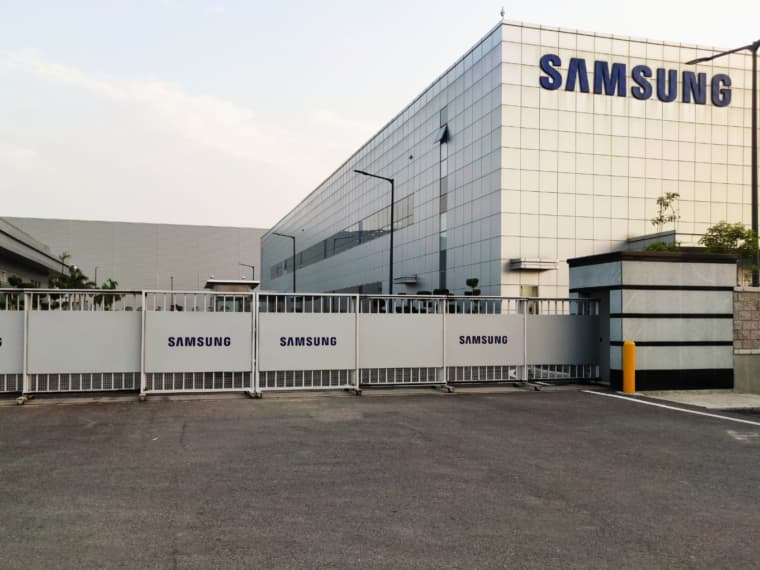
The facility will have an annual production capacity of approximately 60,000 to 70,000 units
This move marks Samsung as the first foreign hardware producer to initiate local laptop manufacturing without prior capabilities in the country
This move comes after the Indian government notified restrictions on the import of laptops, tablets etc.
South Korean electronics giant Samsung Electronics is exploring the possibility of launching laptop manufacturing operations in India next month.
Samsung’s Greater Noida factory, primarily known for mobile phone production, has recently extended its capabilities to include a laptop-focused manufacturing unit, with an annual production capacity of approximately 60,000 to 70,000 units, according to a Mint report.
“Samsung will start to make laptops here. The Noida plant, the company’s largest mobile phone manufacturing factory, will house the additional lines that will be used for making laptops,” according to a source cited by the publication.
This move marks Samsung as the first foreign hardware producer to initiate local laptop manufacturing without prior capabilities in the country.
Despite not participating in the IT hardware Production-Linked Incentive (PLI) scheme, Samsung continues to actively manufacture a range of consumer goods in India.
According to previous reports, the Korean conglomerate was aiming to offer a diverse laptop portfolio, catering to both consumer and enterprise needs, with prices ranging from INR 40,000 to INR 1,20,000.
This move comes after the Directorate General of Foreign Trade (DGFT) in August notified restrictions on the import of laptops, tablets, and personal computers falling under the HSN 8741 category.
However, the centre has reportedly called off its plans to impose licensing requirements on the import of IT hardware products. Instead, India will look to regulate inbound shipments of products through an import management system.
Samsung’s move aligns with the government’s concerted efforts to bolster domestic production, leveraging a strategic blend of financial incentives, tax advantages, and import limitations.
It is to be noted that the PC market has been seeing a decline in India. In the first quarter of 2023 (January-March), the traditional PC market in India, which includes desktops, notebooks, and workstations, saw a significant decline in shipments, with only 2.99 Mn units, marking a 30.1% year-over-year decrease.
During this period, desktop demand showed some growth, but the notebook category experienced another challenging quarter, with a 40.8% year-over-year decline. The top five players in the PC market were HP, Lenovo, Dell, Acer and Asus.































 Ad-lite browsing experience
Ad-lite browsing experience